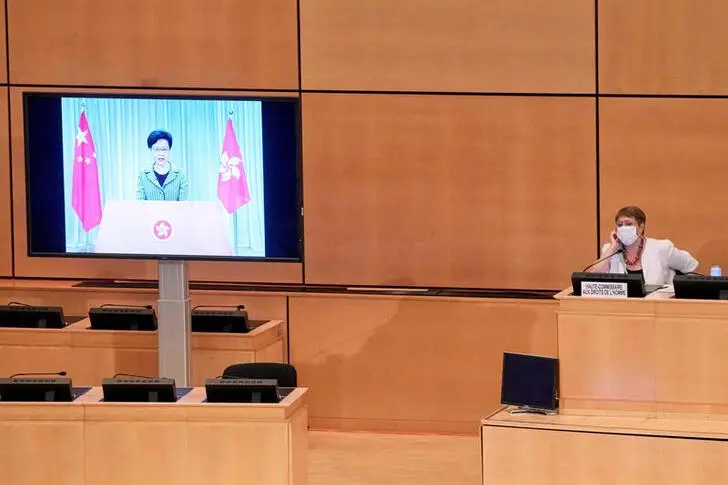PHOTO
(The author is a Reuters Breakingviews columnist. The opinions expressed are his own.)
HONG KONG - On the 23rd anniversary of its return to Beijing’s control, Hong Kong is being reshaped into a less distinct city. Harsh new security laws targeting a long-running protest movement have been secretly drafted and hastily imposed without the local legislature’s involvement. They may quash the disruptive demonstrations that have vexed the business community, but the price of order will be high.
Public safety is generally a requirement for financial success. Violent protests in Hong Kong that blocked transit routes, damaged subway stations and targeted banks clearly hurt the Asian financial hub’s economic performance, helping send it into recession. Before even seeing the language in the law, half of local companies polled by the Hong Kong Chamber of Commerce expected it to have a positive impact. Others, including HSBC, publicly backed it ahead of time.
They may have to rethink some of the optimism. For one thing, there is a clause on extradition, which is what kicked off the demonstrations in the first place. Suspects in vaguely defined “complex” cases involving collaboration with nefarious foreign forces can be sent from Hong Kong to mainland courts for trial. The maximum penalty for crimes of sedition, subversion, terrorism, or collusion with “external elements” is life in prison. The definition of subversion is wide enough to allow for prosecution of those who criticise or embarrass the Chinese Communist Party.
Supervision of media, non-governmental outfits, schools and international organisations – a broad category that could include big banks and research shops – will be increased. A new local police unit is to be established and operate outside Hong Kong’s jurisdiction. Judges in security cases will be handpicked by the city’s leader. The law even allows that some trials might not be made public. It is also extraterritorial, applying in theory to critics of China who live outside Hong Kong. That could have a chilling effect on travel to and through the city.
The opposition is already running for cover. Renowned activist Joshua Wong and his colleagues disbanded their pro-democracy group Demosisto on Tuesday. For the capitalists, they also have to keep an eye on what Beijing is doing elsewhere.
The nearby island province of Hainan, for example, has been anointed as a free trade port, which will compete both with Hong Kong’s import and export activity, and with its luxury retail sector given liberalisations offered to Hainan’s duty-free stores. Shanghai also is being positioned to take trade financing business away from Hong Kong. The Greater Bay Area, a megalopolis that unites cities including Shenzhen, is set to receive more policy perks including selective capital account opening.
Finally, although Hong Kong resistance will be driven underground by the national security law, the history of struggles in places such as Northern Ireland suggests tough measures do not necessarily ensure stability. With foreign sanctions looming, too, companies big and small may be overestimating the benefits of any restored calm.
CONTEXT NEWS
- Chinese authorities on June 30 unveiled details of a comprehensive new national security law for Hong Kong, bypassing the city's local parliament and setting the stage for some of the biggest legal changes to the former British colony since it returned to Chinese rule 23 years ago.
- The law defines four crimes: separatist activity, state subversion, terrorist activity and collusion with foreign forces.
(The author is a Reuters Breakingviews columnist. The opinions expressed are his own.)
(Editing by Jeffrey Goldfarb and Jamie Lo) ((pete.sweeney@thomsonreuters.com; Reuters Messaging: pete.sweeney.thomsonreuters.com@reuters.net))





















